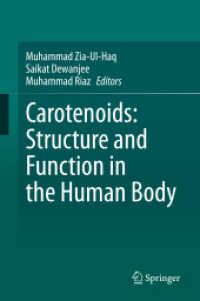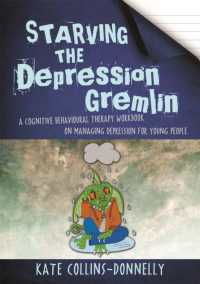Full Description
This volume brings together essays that demonstrate, women during the 1550 to1750s were far from being passive victims or bystanders, and it is no longer adequate to discuss their experiences within the simple paradigm of active/passive or public/ private. By exploring the dynamics of female behaviour, these works dramatically expand the perception of the legal process, of women's engagement with it, and of the gendered attitudes of early modern England. Each of the chapters in this book serves to qualify a model of oppressive patriarchy with women as passive victims. A crucial challenge for historians is to understand the way in which the whole of society, including women, constructed gender and allocated and imagined rôles for either sex. By closely examining behaviour when individuals exhausted social tolerance or broke fundamental taboos we gain insights difficult to achieve by other means.
Contents
Notes on contributors, Acknowledgements, 1 Introduction, 2 Language, power, and the law: women's slander litigation in early modern London, 3 "Scolding women cucked or washed": a crisis in gender relations in early modern England?, 4 Women, theft and the world of stolen goods, 5 Women, witchcraft and the legal process, 6 Witchcraft and power in early modern England: the case of Margaret Moore, 7 Negotiating for blood money: war widows and the courts in seventeenth-century England, 8 Women, custom and equity in the court of requests, Glossary, Bibliography, Subject index








